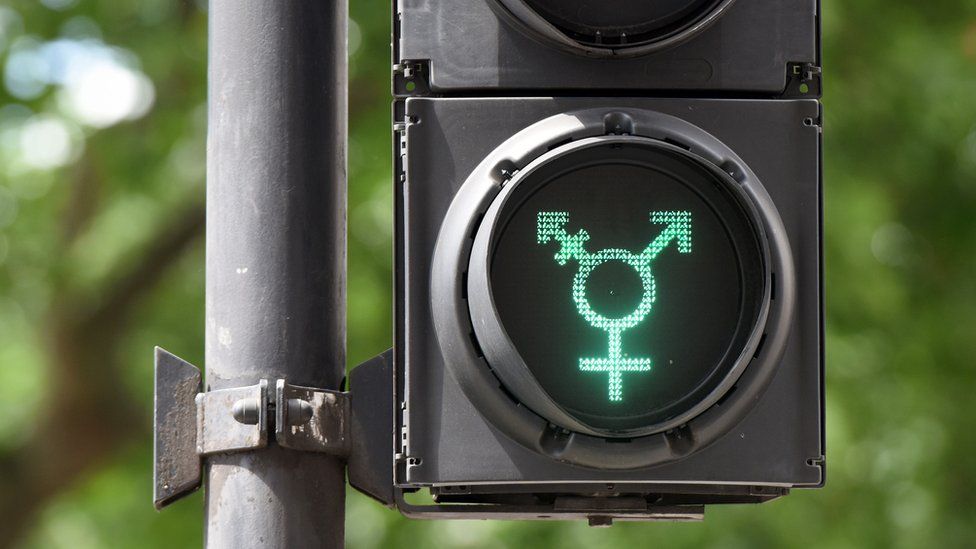Reality Check: What does legally changing gender involve?
- Published

It can take more than five years for trans men and women in England and Wales to legally change their gender under the current system.
But this process could be made quicker as the result of a new government consultation on streamlining the process.
What do people have to do now to legally change their gender?
At the moment, in order to change gender in the eyes of the law, individuals have to apply for a certificate under the 2004 Gender Recognition Act. They must be aged 18 or older.
First they must live for two years in their preferred gender. This is not to do with medical intervention - they can apply to change their legal gender without having undergone any hormone therapy or other treatment.
Then they would need to have a diagnosis of gender dysphoria from a psychiatrist. This is a condition where a person experiences distress because of a mismatch between their biological sex and gender identity.
There are only eight gender identity clinics across England and Wales. Rebecca Stinson, head of trans inclusion for Stonewall, the campaign group for lesbian, gay, bisexual and trans equality, says people can wait years even for a first appointment, depending on where they live.
Getting a gender recognition certificate can take more than five years, she adds meaning that the vast majority of trans people do not apply at all because of the cost, waiting time, and "degrading" process of having to prove their gender.
Only once someone has this diagnosis, can they apply to a gender recognition panel - a legal tribunal. The panel, made up of legal and medical experts, will look at the evidence submitted before deciding whether to issue a certificate.
What is the government proposing?
The government wants to overhaul the process so that people seeking to legally change their gender do not need a diagnosis of gender dysphoria or to give evidence that they have been in transition for at least two years.
The government says it wants to "streamline and demedicalise the process", making it simpler and more administrative.
Exactly what the new process will be is the basis of the current consultation.
What does it mean to change gender?
People can change the gender on documentation including passports and driving licences without a gender recognition certificate, but the certificate is the only way to have their gender formally recognised in the eyes of the law.
It replaces a birth certificate and has implications for things like pension and for workplace checks, including the Disclosure and Barring Service (DBS) checks necessary to work with children.
A gender recognition certificate is also required to ensure that trans men and women are placed in the single sex services appropriate to their gender if needed, like prisons or rape crisis centres.
Is it reversible?
At the moment, the process is reversible. If someone changes their mind, they can apply to have the certificate revoked.
- Published23 July 2017